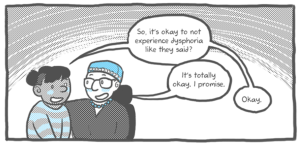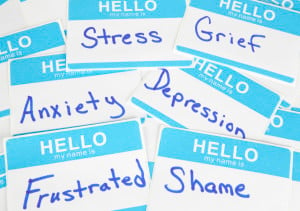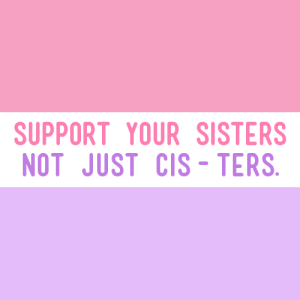
Source: Getty Images
There’s nothing wrong with love.
For so long, I thought that love was weak, that it was the reason why most all of my relationships didn’t work.
I looked at love and saw pain, loss, jealousy, and rejection. Love was stressful.
At times, I would love too much. Then too little. Then not at all.
What I knew was that my relationship with love needed to change, but what I didn’t know was where to start.
I wanted to love, I just didn’t know how.
For the past couple of years, I’ve been learning how to love and the barriers to bash through to do so. If you find yourself in a similar position, here are some tips to get you started.
Self-Esteem
I plopped down on the couch and looked over to my therapist and, like I’d done many times before, said, “I feel like a fraud. How can people see me one way and I see myself completely different?”
I would be congratulated on a job well done, a boyfriend would tell me he loved me, or someone would tell me that I looked nice, and all I ever thought was that these people were lying to me.
All of the nice things they said, any type of praise, all of it – fake. It was like I was an imposter: self-assured on the outside, but inside plagued with feelings of inadequacy.
It was kind of a crapshoot, see, because I wanted – heck, craved – validation from others to feel better, but in the end, it never did anything but bring up more of my insecurities.
The truth? I didn’t know how to take care of myself yet.
But then I learned something key: Who and what we think we are can confirm or deny our sense of worthiness. And no matter what others may say, it is what we think and feel about ourselves that is most important.
What that means is for us to love well, we have to care for ourselves first.
If we don’t care for ourselves first, then we’ll never know what we deserve in love.
See, once you know what feels good to you, you’ll want nothing but to keep feeling that way. So to keep that feeling, you’ll seek out love that brings happiness instead of suffering.
Where to begin?
Your self-esteem.
If you find that yours is super low, you may have to make it a daily practice.
Psychotherapist Nathaniel Branden says that there are six pillars of self-esteem: living consciously, self-acceptance, self-responsibility, self-assertiveness, purposeful living, and personal integrity.
He believes that sentence completion is a good way to enhance self-development. Some of his exercises look like the following:
Write six to ten endings, each morning for a week or two, for the following stems:
- If I were to bring 5% more consciousness to my daily activities…
- If I were 5% more self-accepting…
- If I were 5%more accepting of my sexuality…
- If I operate 5% more self-responsibly today…
- If I treat my thoughts and feelings as important…
- If I brought 5% more purposefulness to my important relationships…
While I think sentence completion is a great technique for self-awareness, I also think that it needs to be paired with then asking what the next right action is in this situation.
Pretty soon, you’ll start to be self-reliant; you’ll make yourself a priority; you’ll be confident in your right to be happy and what’s appropriate for you. You gain self-esteem by practicing it!
With self-esteem on the mend, you might start to see that this love thing isn’t all that bad.
Because once you like yourself, you want someone to treat you well, and it becomes easy to spot what is and isn’t acceptable behavior for you in a partner.
Surrender
Sometimes it feels like we have to protect ourselves from love, because it could cause too much hurt and heartache or maybe even too much joy and warmth.
By putting up walls and armor, we think the enemy won’t be able to break through.
We try to protect ourselves, but by avoiding and denying reality, we ultimately crumble.
Being scared of love is okay, because love is uncertain. It’s risky and involves exposure. But the way to love isn’t to block out the fear, but rather to live with it and share it.
I was scared of love for a very long time. Scared to show too much, too little; scared of attachment and also of being too independent.
Really, I was scared of it all, which meant I was in hiding.
Men I was with would always comment that I was like a man when it came to love, and girls would say the same thing. But, again, I was a fraud. Posing like no strings attached, but inside yearning for warmth and tenderness
In her book Radical Acceptance: Embracing Your Life with the Heart of the Buddha, Tara Brach says:
“Perhaps the biggest tragedy of our lives is that freedom is possible, yet we can pass our years trapped in the same old patterns…We may want to love other people without holding back, to feel authentic, to breathe in the beauty around us, to dance and sing. Yet each day we listen to inner voices that keep our life small.”
You may not want to keep listening to the words and voices in your head that constantly break your fall. Maybe what you have to do is jump – throw yourself at your gut and surrender.
Maybe you’re exhausted by the constant battle, so much so, that you rip off your protective give and throw yourself headfirst into the unknown.
Maybe if you like somebody, you tell them.
Maybe if you don’t like how you’re being treated, you say something.
If you wanted to call someone, you can.
Today, people see feeling as weakness. But it’s truly our strength.
How to surrender to your feelings is to give them the power they deserve, listen to them, and most of all, respect them.
You can develop a genuine connection to your feelings through meditation, for example.
Meditation will bring about mindfulness, which will then turn you into a witness of thoughts and feelings.
By becoming a witness, you can easily spot whether you’re oppressing your feelings or being true to them.
Acceptance
To love well, we have to let love, live, and grow.
The way forward is not to manipulate love so it fits us, but to experience the relationship as it is and choose if it’s the right one or not.
Imagine that your partner is quiet. They lay low at social gatherings, and will likely never be the one in the middle of the dance floor, riling up the crowd.
If you’re outgoing and like to socialize, this could be a problem for you. You could express your desire to your partner, but ultimately, that’s not who they are.
It’s at this point that you have a choice: You can accept them as they are, get annoyed, and secretly resent them for not changing to make you happy, or you can end the relationship.
What you can do is separate yourself from the situation, almost like you’re observing it from an airplane.
Look at who your partner is, what they do, what they don’t do. Think about each piece and whether or not you can accept it.
Is it a deal breaker? Are you going to get annoyed every time your boyfriend sits in front of the TV and plays a video game or are you going to respect that that is who he is?
When you actively choose to accept your partner for who they are, you’re acknowledging that it isn’t their responsibility to make you feel fulfilled – it’s yours.
—
To love well means that we can’t give up on what we really want.
It means that we stay true to our feelings, that we surrender, that we accept what is in front of us.
It’s easy to hide, to stick to the same patterns of self-sacrifice.
But to love – and to love well – takes courage.
Want to discuss this further? Login to our online forum and start a post! If you’re not already registered as a forum user, please register first here.
Cynthia Kane is a Contributing Writer at Everyday Feminism. Cynthia Kane is a Contributing Writer for Everyday Feminism. Over the last year and a half, she’s relearned the following: how to jump up and down when she’s happy, cry when she’s sad, laugh when something’s funny, take a compliment, smile at strangers, and be open to the fact that everyone is going through it all the time. For more, visit her website or follow her on Twitter @cynkane. Read her articles here.
Search our 3000+ articles!
Read our articles about:
Our online racial justice training
Used by hundreds of universities, non-profits, and businesses.
Click to learn more




















